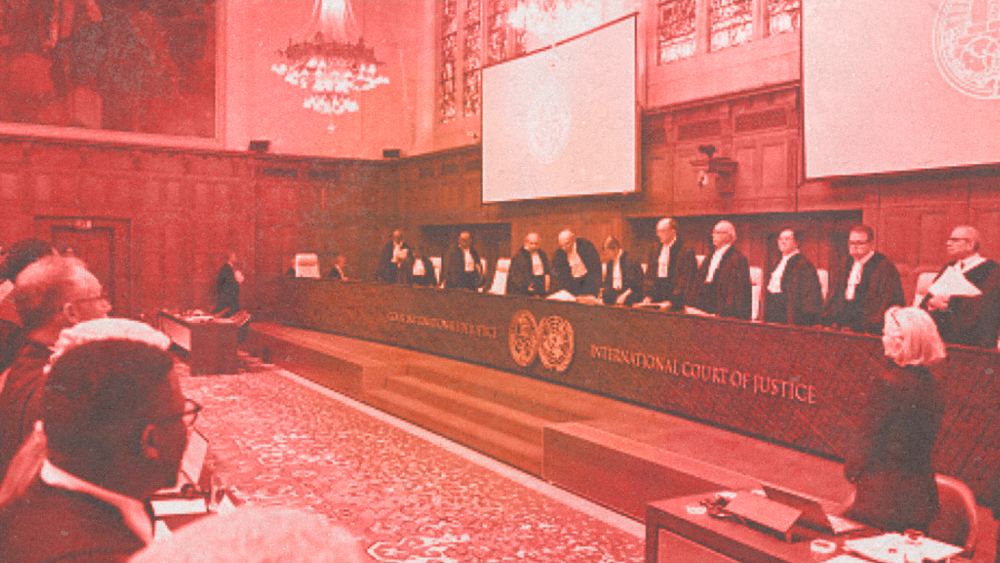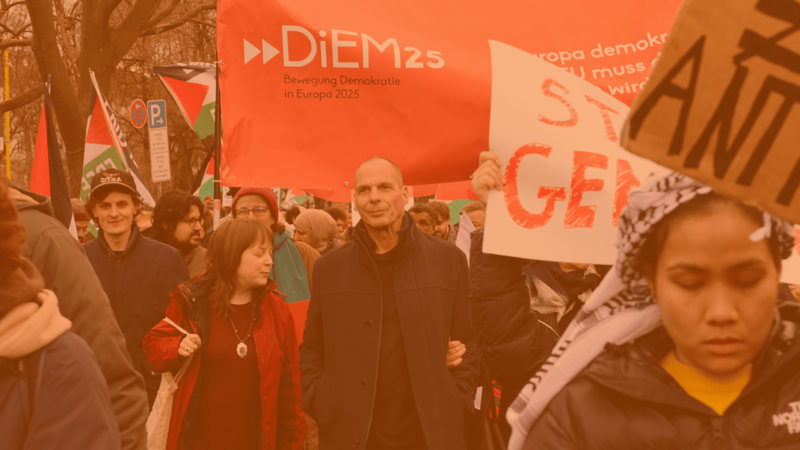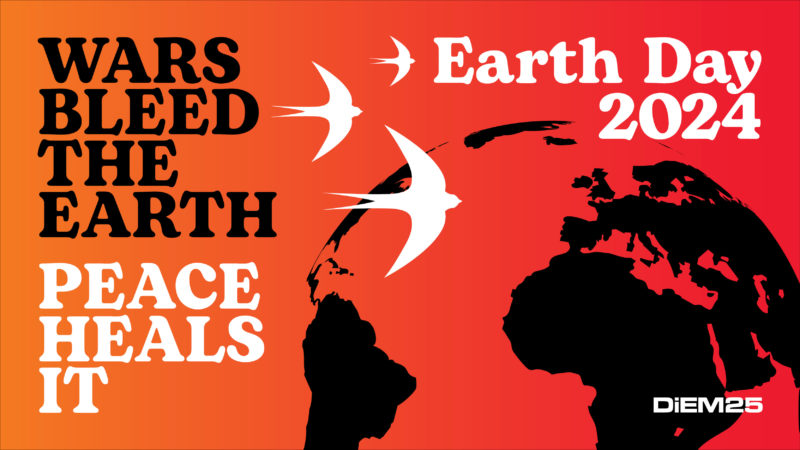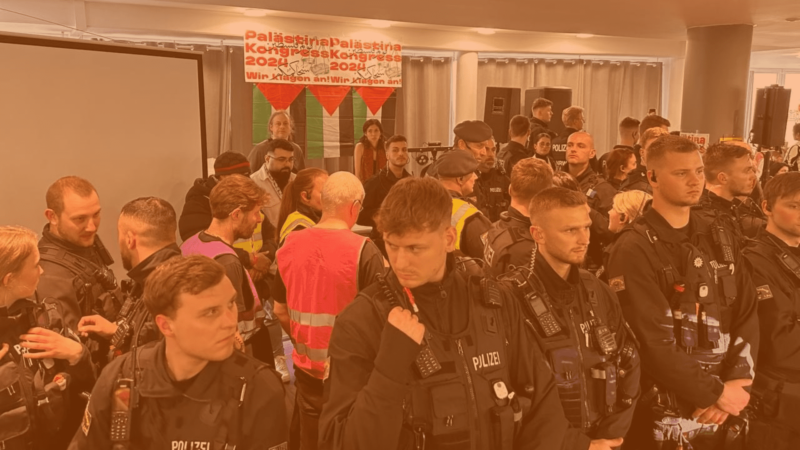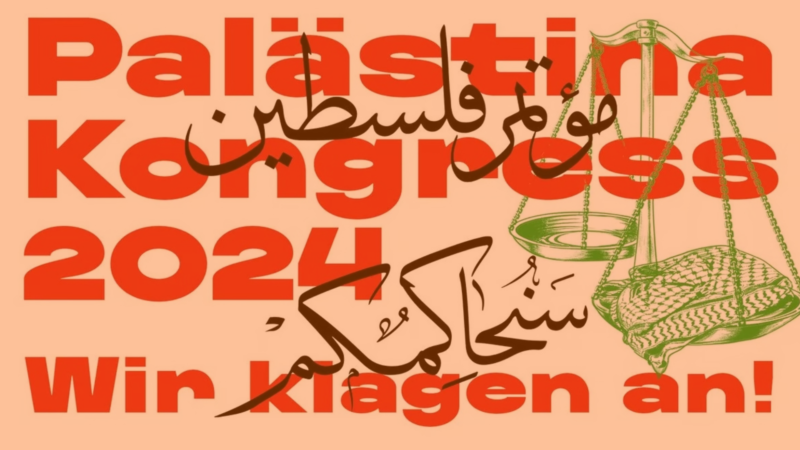DiEM25’s Communications Director Lucas Febraro was interviewed by Al Jazeera following Germany’s declaration that it would support Israel at the International Court of Justice in the genocide case put forward by South Africa.
Speaking to host Malika Bilal, Lucas explained what was behind Germany’s unwavering support of Israel.
MB: South Africa recently presented a case to the International Court of Justice accusing Israel of genocide in Gaza. And soon after Germany announced that it would intervene on Israel’s behalf as a third party.
Was this expected and what motivation did Germany have to make a move like this?
LF: Well, if you’ve been paying attention to what’s going on in Germany, the German government has dismissed South Africa’s case essentially against Israel as baseless.
It’s not surprising in the least. I think really what the eye-popping callousness is is in the details. So the fact that they chose to not only dismiss it, but chose to intervene as a third party, on behalf of Israel, which is not something that is common in the ICJ, and that they chose to do so on the anniversary of the beginning of the Herero and Nama rebellion in 1904 in the German colony in Africa, which is now part of Namibia, which would lead to the first genocide of the 20th century, which was perpetrated by the German Empire, the lesser known of the genocides perpetrated by Germany last century.
So it’s hard, when we talk about Germany and its relationship with Israel, to discern the logic behind it in some instances. And to me, that’s one of those instances.
Taking it back to Germany, Germany and Zionism have long been linked, dating back to the end of World War II and the atrocities of the Holocaust.
Can you talk about how that evolved into today’s alliance with the State of Israel?
I think this sort of limitless support for the state of Israel which has been taking place from the 60s onwards, it served then and it continues to serve two important goals for Germany. The first one is external.
It allows Germany to say to the world: “Never mind that we never fully denazified as a state, which we didn’t, never mind that antisemitism is still a deep seated issue in wider German society, which it is. We support the Jewish state. We embrace it as a bastion of the West in the Middle East. We will aid it economically, we’ll arm it to the teeth…” And then they are, as a result, welcomed back in the international stage as an integral part of the West after World War II.
And then there’s the internal goal, which is to allow German society to expiate its sins from the Holocaust that exists in its collective consciousness. And because Israel is so criticized in the global stage as a result of its long records of violations of international law, there’s also a bonus element here, which is to allow Germany, as now a tireless defender of Israel, which you see and perceives to be under constant attack, to reacquire a sense of moral superiority, which they have obviously lost any semblance of as a result of the Nazi period, and it allows them to now identify themselves with their victims and therefore become themselves in a way victims and not perpetrators anymore.
Let’s talk about how that defence of Israel is playing out at home in Germany. Germany has been cracking down on pro Palestinian sentiment. You posted a TikTok not too long ago about a pro Palestine protest on New Year’s Eve. What happened? And can you describe the atmosphere in Berlin since October 7?
This new year’s demonstration. It was scheduled to take place in Neukölln, which is a neighbourhood here in Berlin with a large proportion of residents with Arab and Palestinian migration background. It was banned by police under the pretext that it presented a safety concern, which is something that’s often used by police to sort of ‘Minority Report’ mentality of ‘in order to prevent a crime, we need to ban the demonstrations because a crime might take place then’.
Also, ironically, two pro Israel demonstrations scheduled for the same day, at the same place, in the same neighbourhood, weren’t banned by police. So the double standards are also very evident and it’s something that’s been just a part of life here in Berlin, especially if you’re pro-Palestine since October 7.
So it began with basically this blanket ban on pro Palestine demonstrations in October.
In Berlin, which has one of the largest Palestinian populations outside of the Middle East, even symbols such as the Palestinian flag, and even as much as wearing a keffiyeh in public were prohibited at points in October. The climate of repression and intimidation remains.
There was a particularly bizarre case that I recall in Frankfurt back in November, in which a protester was detained for holding up a sign saying, “this Mexican supports Palestine”.
The justification was, it had a drawing of a raised fist, which the police deemed to be offensive. This of course goes beyond what happens at protests, so people have lost jobs over posting pro Palestine content online.
Numerous events featuring artists and public figures in general who are critical of Israel, such as Jeremy Corbyn, the writer Masha Gessen, Bernie Sanders even, have either been cancelled or faced boycott pressure. And of course it’s worse of all for Palestinians living in Germany and Arabs and Muslims in general.
Here’s Germany’s foreign minister, Annalena Baerbock, speaking at a foreign policy event in Berlin in November. “Antisemitic hatred and anti-Israel agitation is not an opinion. Those who live in Germany and who question Israel’s right to existence or even put into perspective the Holocaust will encounter our determined resistance with all its consequences.”
People who are in often precarious conditions as far as visas and residence permits are concerned, which now face public pressure to distance themselves from antisemitism and the actions of Hamas or their presence may not be tolerated in Germany for much longer, the assumption being that unless you speak up against antisemitism and the targeting of civilians, when you’re Arab or Muslim, you’re presumed to support them, which is pure, naked racism.
Germany has what it calls a culture of remembrance. What is that, and how have you seen it play into the German government’s unwavering support of Israel?
You know, it’s a much lauded culture, and if you look at it from the outside, it does seem that a lot of what Germany has done to reckon with the legacy of the Holocaust is commendable.
A lot of it is commendable, but I think there are very revealing quotes by Rolf Vogel, a German post war journalist whose work focused a lot on German-Israeli relations. He said, “the Uzi in the hand of the German soldier is better than any brochure against antisemitism”. The Uzi, of course, being the famous Israeli submachine gun.
I think that encapsulates this relationship very well. So there is this element of the supporters of Israel in as far as foreign relations is concerned. But also this very perverted treatment of the topic of antisemitism at home. The pinnacle of irony is that Germany has a large bureaucracy ostensibly to fight antisemitism.
So again, once you start looking a little bit more closely into Germany’s remembrance culture, you start noticing some very concerning facts and developments.
I want to end where we began, with the charge of genocide and what you referenced in the first place on why Germany’s decision to intervene at the ICJ was so ironic, especially given the day they did it.
And that is because of one of the historical events that should be part of Germany’s culture of remembrance, but often isn’t, is that first genocide of the 20th century that we talked about. German troops killed tens of thousands of Nama and Herero people in present day Namibia.
Between 1904 and 1908, German forces killed more than 70,000 indigenous people. When Germany announced it would intervene, Namibia condemned Germany’s decision.
The Namibian president says Germany has failed to learn lessons from its colonial past. What should we take away from that?
I think what most of us take away from it is the perverse irony of it all and sort of the tone deafness of the German state.
Germany has this history of genocide that goes beyond World War II. That history involves Namibia directly. The Herero and Nama genocides are genocides for which the German government, according to Namibia has never fully atoned for.
Something that’s also very striking is that if you learn a little bit more about the Herero and Nama genocides, a lot of the victims in that genocide died as a result of starvation and dehydration as German forces trapped them in a desert with no access to food or water, preventing them from leaving.
So even there, the parallels with Gaza also become even more striking. I think the important question though is, what is it that the German state and the German society, what is it that they take away from it? It’s a very concerning path that German society is heading towards. So my hope is that the German government and German society start taking some things away from these statements as well.
Listen to the full interview here
Do you want to be informed of DiEM25's actions? Sign up here






